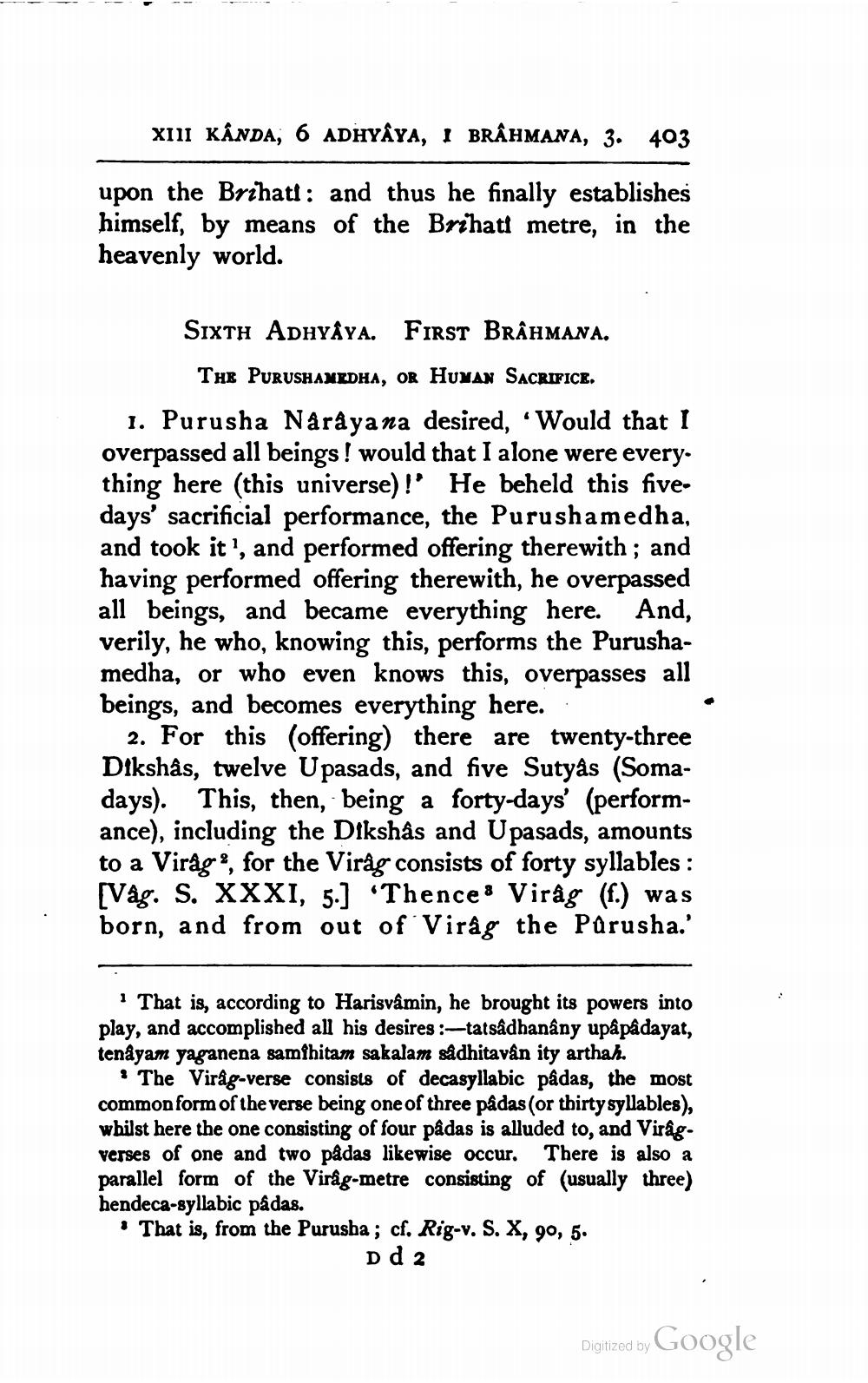________________
XIII KANDA, 6 ADHYAYA, I BRAHMANA, 3. 403
upon the Brihati: and thus he finally establishes himself, by means of the Brihati metre, in the heavenly world.
SIXTH ADHYAYA. FIRST BRAHMANA.
THE PURUSHAMEDHA, OR HUMAN SACRIFICE.
1. Purusha Nârâyana desired, 'Would that I overpassed all beings! would that I alone were everything here (this universe)!' He beheld this fivedays' sacrificial performance, the Purushamedha, and took it', and performed offering therewith; and having performed offering therewith, he overpassed all beings, and became everything here. And, verily, he who, knowing this, performs the Purushamedha, or who even knows this, overpasses all beings, and becomes everything here.
2. For this (offering) there are twenty-three Dikshâs, twelve Upasads, and five Sutyâs (Somadays). This, then, being a forty-days' (performance), including the Dikshâs and Upasads, amounts to a Virâg, for the Virag consists of forty syllables: [Vâg. S. XXXI, 5.] 'Thence3 Virâg (f.) was born, and from out of Virâg the Purusha.'
That is, according to Harisvâmin, he brought its powers into play, and accomplished all his desires:-tatsâdhanâny upâpâdayat, tenâyam yaganena samfhitam sakalam sâdhitavân ity arthah.
The Virág-verse consists of decasyllabic pâdas, the most common form of the verse being one of three pâdas (or thirty syllables), whilst here the one consisting of four pâdas is alluded to, and Virâgverses of one and two pâdas likewise occur. There is also a parallel form of the Virâg-metre consisting of (usually three) hendeca-syllabic pâdas.
That is, from the Purusha; cf. Rig-v. S. X, 90, 5.
Dd 2
Digitized by
Google




